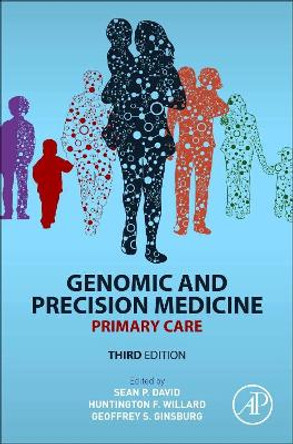Description
A leading evolutionary historian offers a radical solution to racial health disparities in the United States.
Constance B. Hilliard was living in Japan when she began experiencing joint pain. Her doctor diagnosed osteoarthritis-a common ailment for someone her age. But her bloodwork showed something else: Hilliard, who had never had kidney problems, appeared to be suffering from renal failure. When she returned to Texas, however, a new round of tests showed that her kidneys were healthy. Unlike the Japanese doctor, her American primary care provider had checked a box on her lab report for "African American." As a scholar of scientific racism, Hilliard was perplexed. Why should race, which experts agree has no biological basis, matter for getting accurate test results?
Ancestral Genomics is the result of Hilliard's decade-long quest to solve this puzzle. In a masterful synthesis of evolutionary history, population genetics, and public health research, she addresses the usefulness of race as a heuristic in genomic medicine. Built from European genetic data, the Human Genome Project and other databases have proven inadequate for identifying disease-causing gene variants in patients of African descent. Such databases, Hilliard argues, overlook crucial information about the environments to which their ancestors' bodies adapted prior to the transatlantic slave trade. Hilliard shows how, by analyzing "ecological niche populations," a classification model that combines family and ecological histories with genetic information, our increasingly advanced genomic technologies, including personalized medicine, can serve African Americans and other people of color, while avoiding racial essentialism.
Forcefully argued and morally urgent, Ancestral Genomics is a clarion call for the US medical community to embrace our multigenomic society.
About the Author
Constance B. Hilliard is Professor of History at the University of North Texas. She is the author of several books, including Straightening the Bell Curve: How Stereotypes about Black Masculinity Drive Research on Race and Intelligence.
Reviews
Well-argued and deeply researched...a thought-provoking take on the influence of race on modern medicine. * Kirkus Reviews *
Mines [Hilliard's] decades of research to reveal remarkable findings about the genetic and ecological roots of some of the most persistent issue plaguing U.S. health care. -- Will Bostwick * Texas Monthly *
A tour de force. Timely, well documented, and frankly fascinating, Ancestral Genomics successfully combines multiple disciplines to advance a worthy goal: making genomics a unifying knowledge for the entire human family. -- Ambroise Wonkam, Director, McKusick-Nathans Institute, and Department of Genetic Medicine, Johns Hopkins University
A must-read for anyone interested in health equity, citizen science, or family history. Dispelling pervasive myths around race and group differences, Hilliard reveals the critical role that considerations of ancestry must play in any attempt to make precision medicine more just and equitable. -- Goldie Smith Byrd, Director, Maya Angelou Center for Health Equity, Wake Forest University
A fascinating personal health journey that leads us from Japan to Timbuktu. Noting that the genetic data in the Genome-Wide Association Studies come overwhelmingly from those with European ancestry, Hilliard shows why these data must be diversified to understand medical conundrums. This is essential reading for those who puzzle about their health and wellness, and it may lead physicians who rely on standard references (70 kg white males) to reconsider their diagnoses. -- Linda M. Dairiki Shortliffe, Stanley McCormick Memorial Professor of Urology, Emerita, Stanford University
Book Information
ISBN 9780674268609
Author Constance B. Hilliard
Format Hardback
Page Count 208
Imprint Harvard University Press
Publisher Harvard University Press
Weight(grams) 376g
Dimensions(mm) 210mm * 140mm * 13mm




